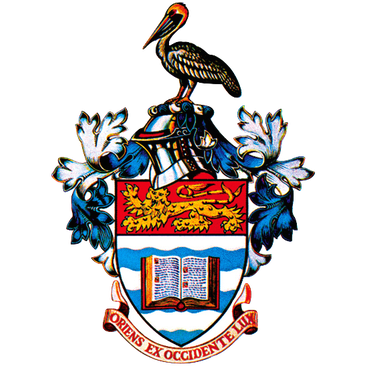Core modules
A core syllabus is offered in the first for all degree courses providing the essential foundations in biology biochemistry genetics and chemistry The shared content in the first means that it is often possible to transfer between the different degrees at the end of the first
Core and optional modules in the second and third allow students to tailor their degree Most modules are core in the first with optional modules in two and four
Our modules span human brain health and wellbeing neurophysiology neuropharmacology infection and the biology of molecules and cellular systems including recent advances in psychiatric conditions such as depression and schizophrenia
Other areas covered include CNS conditions such as epilepsy stroke Alzheimer’s and Parkinson’s diseases and neuromuscular disorders
Important information
Please note that we are planning to make some exciting changes to our Neuroscience with Placement Year degree for 2024 entry We continually review our curricula to reflect developments in the relevant disciplines to deliver the best educational experience The core and optional modules will undergo approval through the University's rigorous academic processes As modules are approved we will update the course information on this webpage and send offer holders an updated Course Material Information document via email It is very important that you check this carefully prior to accepting an offer
Year One
Molecules Cells and Organisms
You'll study this module as the essential foundation for most other modules taught in the School of Life Sciences You'll gain the basic knowledge you need of molecular and cellular aspects of biology and also become familiar with whole-organism and developmental biology in the context of evolution
Read more about the Molecules Cells and Organisms moduleLink opens in a new window including the methods of teaching and assessment (content applies to 2021 22 of study)
Agents of Infectious Disease
You will start by gaining a thorough foundation in microbiology and virology using infectious diseases as a common link to promote your understanding Through your study of epidemiology you will learn to appreciate the way that diseases spread and the methods used to investigate this spread On completion you can expect to understand the role of various structures associated with the bacterial cell in causing a range of diseases and appreciate the structure of viruses and how this relates to their capacity to cause disease and the host response to viral challenge This will equip you with the necessary theoretical foundations to underpin your future studies
Read more about the Agents of Infectious Disease moduleLink opens in a new window including the methods of teaching and assessment (content applies to 2021 22 of study)
Physiology and Metabolism
On this module you will learn how parts of the body function and work together in the whole organism You will study the physiology of the nervous system cardiovascular system respiratory system and special senses Your study of metabolism will help you to understand the generation of energy within the body anabolism the role of enzymes and specific functions such as glycolysis the citric acid cycle pentose phosphate pathway and photosynthesis You will then combine your learning to gain a thorough understanding of the way the body adapts to environmental conditions such as altitude depth cold and heat
Read more about the Physiology and Metabolism moduleLink opens in a new window including the methods of teaching and assessment (content applies to 2021 22 of study)
Quantitative Skills for Biology
All biological scientists need to understand and analyse quantitative data So this module will see you learning to use statistical methods for analysing and summarising experimental data (for example from your lab classes) and learning the basic principles for modelling biological populations
Read more about the Quantitative Skills for Biology moduleLink opens in a new window including the methods of teaching and assessment (content applies to 2021 22 of study)
Tutorials and Laboratories
Chemistry for Biologists - compulsory for entrants without A2 level Chemistry
Year Two
Tutorials and Laboratories
Molecular Cell Biology
On this module you will gain a sound knowledge of the organisation complexity and essential processes that occur in the genomes and information-processing mechanisms in all three domains of life You will study the molecular biology that underlies fundamental cellular processes including the cytoskeleton in cellular structure function and motility the mechanisms that control cell proliferation and genome stability protein processing in secretory pathway organelles and programmed cell death in eukaryotic cells
Read more about the Molecular Cell Biology moduleLink opens in a new window including the methods of teaching and assessment (content applies to 2021 22 of study)
Blood and Circulation
This module is designed to give you an all-round understanding of the physiology and pathophysiology of two linked body systems blood the haematological system and circulation the cardiovascular system You will cover the functioning of these systems in both health and disease
Read more about the Blood and Circulation moduleLink opens in a new window including the methods of teaching and assessment (content applies to 2021 22 of study)
Neurobiology
This physiology module provides an overview of neurobiology and includes an introduction to the physiology of the nervous system and detailed analysis of the cell and molecular biology underlying the development and functions of the nervous system
Read more about the Neurobiology module including the methods of teaching and assessment (content applies to 2021 22 of study)
Neurobiology of Disease
You will learn about the structure and function of the brain and the peripheral nervous system You will gain an understanding of the neuropathology anatomy and pathophysiology of diseases involved You will be taught how physiological processes can be disrupted and the clinical consequences these disruptions cause
Read more about the Neurobiology of Disease moduleLink opens in a new window including the methods of teaching and assessment (content applies to 2021 22 of study)
Neuropharmacology
Neuropharmacology is the study of how chemical agents influence bodily functions in both health and disease and indeed how the body deals with these chemicals The module will concentrate on the use of drug-based therapeutics in a range of human diseases and will bridge the gap between basic cell signalling biochemistry and the complex patho-physiology and treatment of the diseases
Read more about the Neuropharmacology moduleLink opens in a new window including the methods of teaching and assessment (content applies to 2021 22 of study)
Molecular Endocrinology
This module provides you with a foundation for the further study of endocrinology at the cellular and molecular level and a firm basis for understanding normal hormonal control
Read more about the Molecular Endocrinology moduleLink opens in a new window including the methods of teaching and assessment (content applies to 2021 22 of study)
Year Three Four (Depending on if you do an industrial placement or study abroad)
Tutorials and Research Project
Integrative Neuroscience
By considering the important cellular components of the central nervous system this modules illustrates current knowledge of how these determine and contribute to the integrative function of the nervous system
Read more about the Integrative Neuroscience moduleLink opens in a new window including the methods of teaching and assessment (content applies to 2021 22 of study)
Modern Approaches to Human Disease
On this module you will engage with two major themes in modern medicine evidence-based medicine and medical ethnics You will achieve this through in-depth study of the medical specialities of reproductive medicine renal medicine and central nervous system (CNS) medicine
Read more about the Modern Approaches to Human Disease moduleLink opens in a new window including the methods of teaching and assessment (content applies to 2021 22 of study)
Optional modules
Optional modules can vary from to Example optional modules may include
Dynamics of Biological Systems
Immunology
Oncology
Biological Clocks
Synthetic Biology
Science Communication
Extreme Environment Biology
Interdisciplinary and Business modules
One World Health and Neglected Tropical Diseases
Introduction to Secondary Teaching in Biology
Show less














